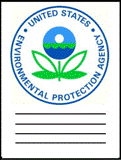United States Environmental Protection Agency

United States Environmental Protection Agency: Publications
Document Type
Article
Date of this Version
5-1970
Citation
Journal (Water Pollution Control Federation), Vol. 42, No. 5, Part 1 (May, 1970), pp. 824-828
Abstract
Water temperatures affect aquatic organisms in a number of ways, both directly and indirectly. Some of the latter effects are quite subtle. High temperatures can have direct lethal effects but sublethal levels operating over long periods can be just as harmful through delayed lethal effects and the production of nonlethal stresses which eventually result in changes in the population, reduced growth or reproduction, and the lowering of resistance to parasites, dis ease, and competitors. Temperature, in combination with certain other factors such as day length, influences re producing processes. High water temperatures may stimulate or retard migration, spawning, feeding, and growth, may influence enzyme and hormone activities and other physiological processes, and may speed up the action of toxicants.
Included in
Earth Sciences Commons, Environmental Health and Protection Commons, Environmental Monitoring Commons, Other Environmental Sciences Commons


Comments
U.S. government work